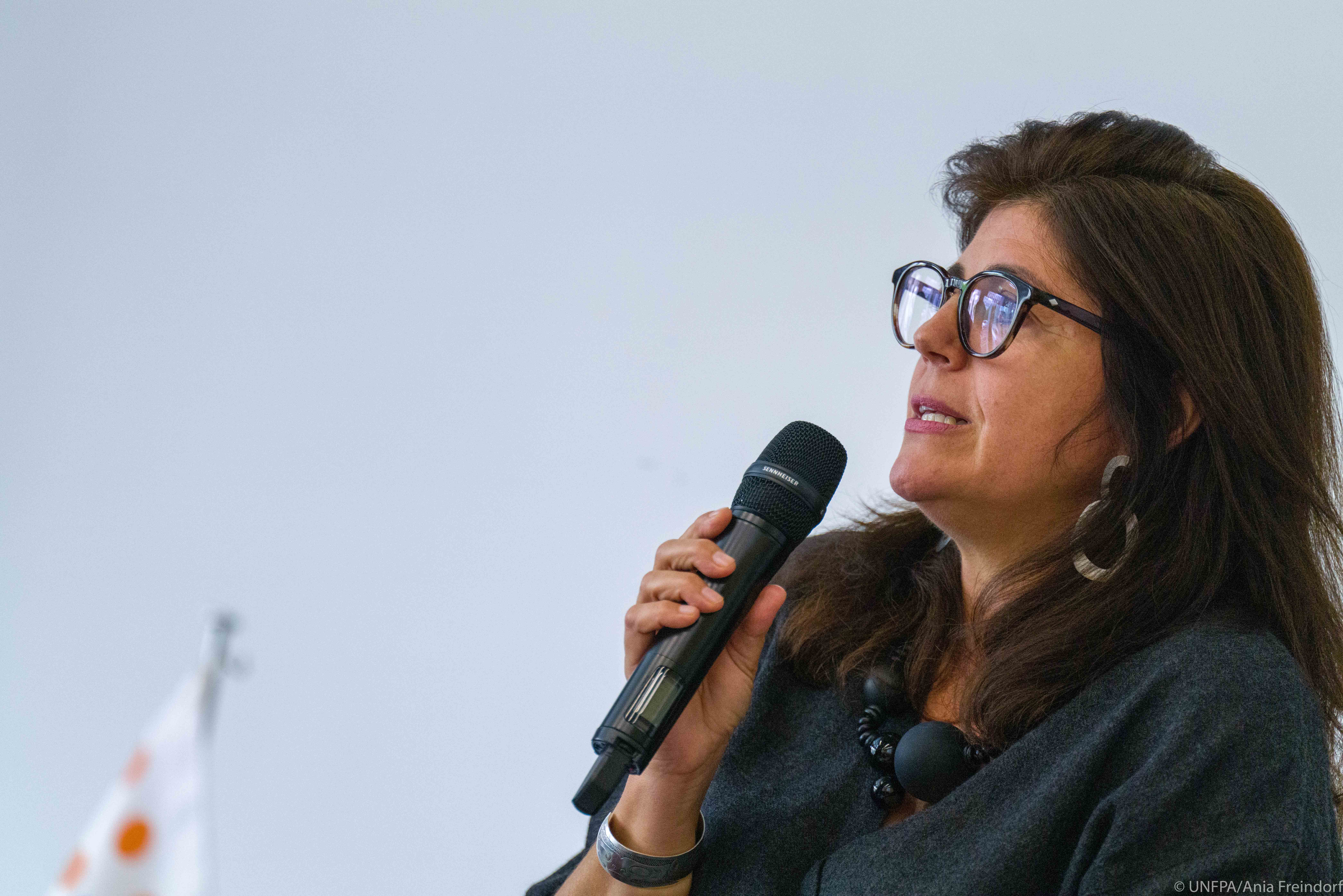
GI-ESCR Participates in the Launch of the State of World Population Report 2024
On April 17, GI-ESCR participated in the official launch of the State of World Population Report by the United Nations Population Fund (UNFPA). The event took place in Geneva, featuring a panel discussion that included Dr Natalia Kanem, Executive Director of the United Nations Population Fund; Magdalena Sepulveda, Executive Director of GI-ESCR; Gilma Viera da Silva, a youth representative from Afro-descendant populations in Latin America; Jarrod Clyne, Head of Advocacy at the International Disability Alliance (IDA); and April Pham, Senior Gender Advisor and Chief of the Gender Unit at UNOCHA.
The report, entitled “Interwoven Lives, Threads of Hope: Ending Inequalities in Sexual and Reproductive Health and Rights”, explores how far we have achieved sexual and reproductive health and rights for all since the 1994 International Conference on Population and Development.
The panel discussion addressed how power and opportunity related to gender, race and nationality, among many other factors, still largely constrain people’s choices in life. In a world of enormous wealth and proven solutions in sexual and reproductive health care, such disparity suggests a shortfall in will and not a lack of ideas or resources.
During the discussions, panelists stressed how intersecting inequalities persist within health systems and must be remedied if the right to sexual and reproductive health for all is to be realised. The panel called on the need to address the root causes of inequalities, so health systems must move towards providing services that do not just treat people but empower them, respond to their diversity, and respect their rights and bodily autonomy.
The discussion also acknowledged that the solution lies beyond health systems. To achieve true equality, the systemic inequalities faced by those furthest behind must be tackled head-on economically, socially, and politically.




